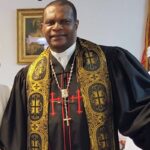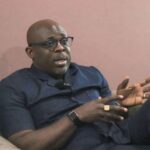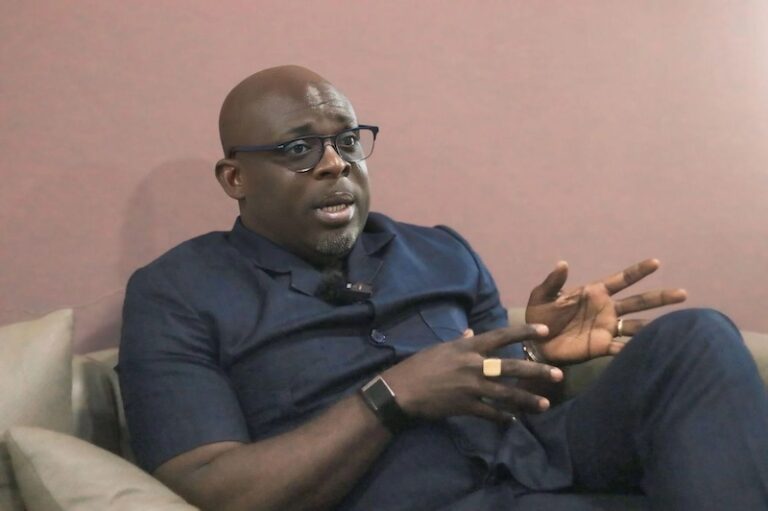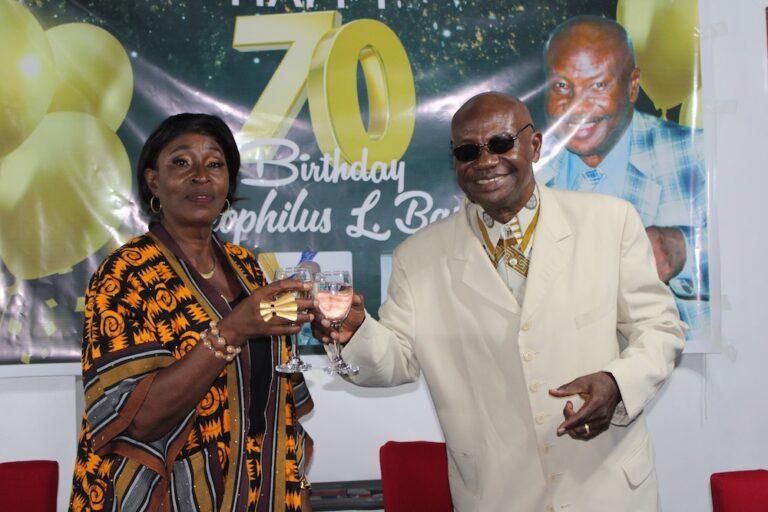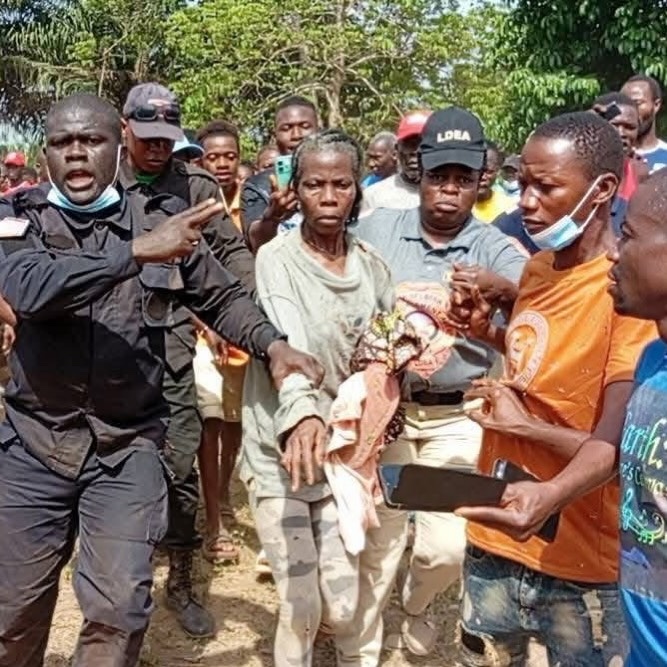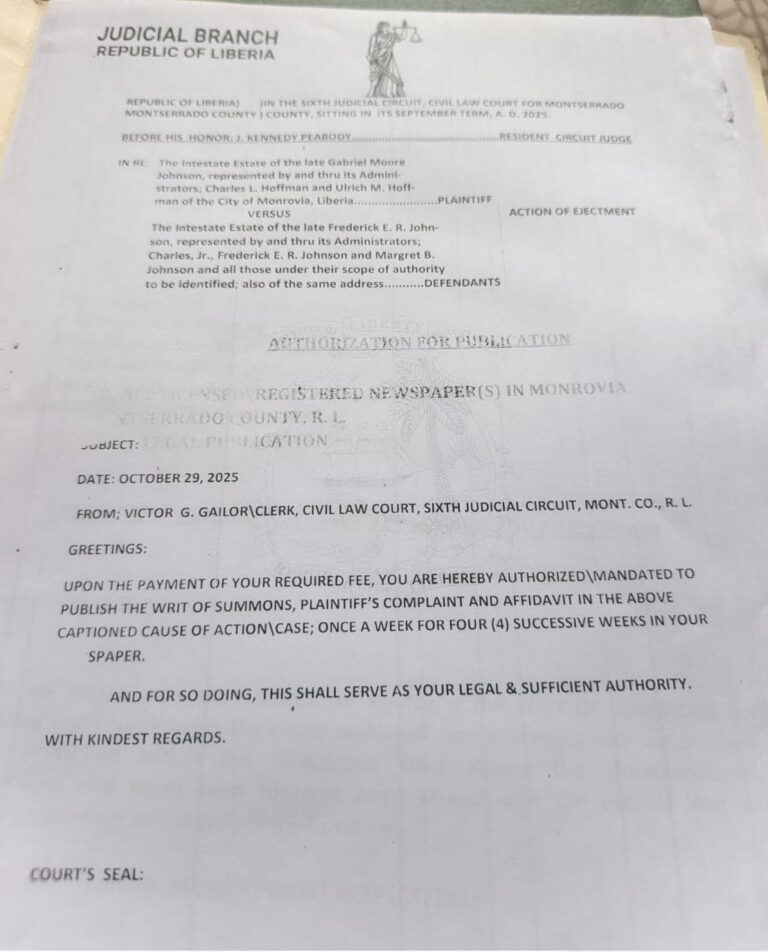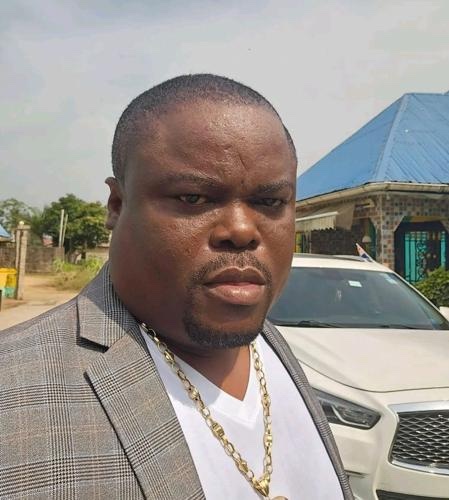
Hun-Bu Tulay
Cell# 231 777 111 032/886 517 356
Email: ntevoma@gmail.com
“Leaders who learn from Liberia’s history can break its cycles of division; those who act on its truths will unite and liberate their people.”
Hun-Bu Tulay
This profound insight epitomizes the transformative power of engaging critically and constructively with history. Nowhere is this principle more powerfully embodied than in Liberia’s enduring tradition of the National Independence Day Orators, a platform reserved exclusively for the nation’s most eminent intellectuals since 1848.For this purpose of this feature, we would like to focus on the last fifty-three consecutive years (1972–2025), luminaries including Dr. Edward Beyan Kesselly, Dr. Elwood Dunn, Dr. Joseph Saye Gaunnu, Dr. Sakui Malakpa, Cllr. Varney Sherman, Dr. Herman Browne, and culminating most recently in the incisive address by the one hundred seventy-eighth Independence Day’s orator, Rev. Dr, Emmett L. Dunn, have seized this hallowed platform. Their purpose transcends mere commemoration; they consistently deploy it as a catalyst to challenge national complacency, rigorously interrogate the past, boldly reimagine the future, and forcefully redefine Liberia’s national trajectory.
Crucially, Rev. Dr. Dunn, like his predecessors, echoed vital recommendations from past orators’ prescriptions the political elites have persistently failed, or refused to implement. This inescapable pattern forces a disturbing question: Why summon the nation’s sharpest minds to diagnose its ailments and prescribe visionary solutions, only to consign their hard-won wisdom to neglect? The chasm between the orators’ courageous insights and the ruling elites’ inertia renders the tradition not merely ignored, but tragically symbolizes a solemn, eloquent dissent met with resounding official indifference, perpetuating the very cycles the orators strive to break.
The Orator’s Mandate: Courage Over Ceremony
Each orator undertook intensive scholarly research, transforming their address into a state of the nation discourse. Far from ceremonial, this tradition becomes a crucible for intellectual audacity. They interrogate history not to dwell on past failures, but to forge pathways toward justice and renewal.
Dr. Edward Beyan Kesselly: The Catalyst of Critical Reflection
The independence oration delivered by Dr. Edward Beyan Kesselly in 1972 in Sanniquelle, Nimba County set an enduring precedent. His address was revolutionary. With fearless scholarship he:
- Challenged Colonial Symbolism:
Called for renaming Monrovia, arguing that honoring U.S. President James Monroe (a slaveowner who supported colonization) perpetuated psychological subjugation.
Critiqued the national motto, “The Love of Liberty Brought Us Here”, as exclusionary. It centered the experience of freed African American settlers while erasing the liberty of Indigenous Africans who already inhabited the land thousands of years before the settlers’ coming.
Questioned the very name “Liberia” (derived from “liberty”), exposing the irony of its founding by colonizers who marginalized native populations.
- Faced Elite Backlash:
Kesselly’ s critique threatened the foundational myths underpinning the settler who dominated the True Whig Party (TWP) regime. Political elites and their supporters vilified him, issuing threats and branding him unpatriotic. His courage lay in exposing uncomfortable truths during an era of entrenched hegemony.
- Unexpected Vindication:
In a historic validation, President William R. Tolbert (1971–1980) appointed Kesselly as Minister of Information, Cultural Affairs, and Tourism. Later, he was appointed Minister of Post & Telecommunications and Minister of Internal Affairs. Tolbert’s recognition signaled that Kesselly’ s “positive reading” of history, though initially suppressed, resonated with a leader who was open to reform.
Legacy of Intellectual Bravery
Kesselly’ s legacy infused the orator’s role with a mandate for bold truth telling. Subsequent orators, though operating in shifting political climates, continued this tradition:
– Dr. Elwood Dunn (2012): A historian who dissected governance failures and advocated for inclusive nationalism.
– Cllr. Varney Sherman (2013): Addressed post-war reconciliation amid Charles Taylor’s shadow, emphasizing rule of law.
– Dr. Sakui Malakpa (2010): Focused on education reform as the bedrock of national progress.
– Rev. Dr. Emmett L. Dunn (2025): Represents continuity in a nation still grappling with corruption, inequality, drug abuse, youth unemployment, messy education and poor health care systems and identity. Now the question is will President Boakai listen and act? And not be like his predecessors? We will wait to see.
Why Their “Positive Reading” Matters
Illuminating these orators’ impact (Dr. Kesselly, Dr. Elwood Dunn, Dr. Hermen) Browne, Dr. Edward Wilmot Blyden, Didwho Tweh, Garratsen Gibson Jr., Momolu Massaquoi, etc.):
Avoiding Past Wrongs: By dissecting Liberia’s origins, settler supremacy, systemic exclusion they exposed cycles of repression demanding rupture.
Advancing Lives: Their proposals (decolonizing names, inclusive mottos, equitable policies and identifying a common heritage) were blueprints for “structural” improvement. Kesselly’ s call, for instance, foreshadowed later movements to decolonize African toponymy and historiography.
The Cost of Truth: Their reception varied from Tolbert’s embrace to threats from elites proving that “reading positively” is often a radical, contested act.
History as a Compass
The National Orators embody vision: they transformed Independence Day from ritual into reckoning. Kesselly’ s 1972 address remains a beacon, reminding us that nations thrive when leaders confront historical ghosts not with nostalgia, but with the courage to reimagine. As Liberia navigates its future, this lineage of critical patriots from Kesselly to Rev. Dr. Emmett L Dunn stands as testament to the power of history, “read positively”, to illuminate the path toward a more just society.
What President Boakai Must Do Now – Listen to Liberia’s Song
Rev. Dr. Dunn’s wisdom resonates profoundly: “When a stranger enters a town, he must listen to the songs the children sing, for they carry the truth of that place the good and the bad.” President Boakai, you arrived at the head of government as the “stranger” to the entrenched system of power. The song Liberians are singing now is a chorus of urgent needs and deep-seated problems. Heeding message of this song isn’t just wise governance; it’s the only path to the Rescue Mission’s legacy and Liberia’s true transformation. Here is a detailed expansion of the critical recommendations and the compelling reasons for their immediate implementation.
- Corruption: The Enduring Cancer (Since 1822): Corruption as defined by the UN as “the misuse of public power… for private benefit,” has plagued Liberia since independence. Over 53 years, successive administrations have failed to effectively combat it. Tolbert’s efforts were unsuccessful, Sawyer prioritized peace over tackling corruption, and Sirleaf famously termed it a “VAMPIRE” while later admitting her own inadequacy. We saw allegations under President Weah point to corruption across all branches, supported by emerging audits. We are seeing allegation of corruption in the current administration.
Corruption has clearly infiltrated all sectors of the government including the Judiciary. Supreme Court Justices, including Morris, Korkpor, Wolokollie, and Kaba, have acknowledged its presence in forms like bribery, extortion, influence peddling, cronyism, and nepotism (as reported by the New Dawn, May 8, 2024). Development partners share this concern.
While rampant in all branches over the past 18 years, it alleged that corruption is most overt in the Legislature. This raises a critical question: if the branch responsible for oversight is itself corrupt, can the other branches be cleaned? The answer is a resounding “NO”. This failure is starkly illustrated by the Legislature’s refusal to investigate its own members regarding the Western Cluster case, where $14 million owed under a ratified Mineral Development Agreement was waived.
The Song: A weary lament of stolen resources, stunted development, and eroded trust. It is a song about impunity for the powerful while the masses suffer the consequences of graft. The ostentatious behaviors of some officials anger the population. This flaunting behavior caused the CDC the 2023 election. Mr. president, tell you officials that we do not run government on Facebook That does not do the work to improve the lives of the masses. We saw this in Weah’s Administration. Why continue it?
Why Previous Efforts Failed: Lack of genuine political will. Fear of alienating powerful allies, patronage networks, and a culture of impunity have consistently undermined anti-corruption rhetoric. Investigations stall, prosecutions target low-level figures, and high-level offenders remain untouched. For example, your delay or failure to discipline some of your officials that are alleged in the NATIONAL Social Security and Welfare USD500,000.00 Vehicle Deal, the alleged Inaugural Fund mismanagement and the recurrent Yellow Machine Deals speak volume. Thank God for Liberia, the Vice President intention save the country USD55 Million United States Dollars. But the question, Mr. President, what happened to those who want to STEAL USD55 MILLIONS of government fund? Some of these officials are continuous in your inner circle and have confidence. This speaks volume Mr. President. The great scientist Albert Einstein once said, “the world or a country is not destroyed by evil/corrupt people but those good people who watch them but sit and do nothing.” If you had taken purity action on the alleged starting from day one, we would be seeing what is currently happening in the government.
Detailed Recommendations & Imperatives:
Reform Anti-Corruption Laws: Prioritize legislation making major corruption offenses (grand corruption, embezzlement of state funds) non-bailable crimes. This removes the immediate “get out of jail free” card for the powerful.
Establish a Specialized Corruption Court: Create a dedicated court with vetted judges (national and international expertise if necessary), specialized prosecutor commission independent of the Ministry of Justice, and robust witness protection act. This court must have exclusive jurisdiction over major corruption and Drug cases to ensure focus, speed, and independence from regular judicial bottlenecks and potential influence.
Reasons for Implementation NOW:
Cost-Effective Transformation: Implementing these legal and judicial reforms requires political courage more than vast financial resources. The return on investment from recovered stolen funds, efficient use of existing budgets, restored donor confidence leading to increased aid and investment is immense.
Restore National Trust: Demonstrating tangible action against corruption, especially targeting the big fish, is the single fastest way to rebuild public faith in government.
Unlock Development: Every dollar stolen or misused is a dollar not spent on roads, schools, clinics, or salaries. Curbing corruption is the fundamental prerequisite for progress in all other sectors.
Legacy Defining: Being the President who finally broke the cycle of impunity and made corruption a genuinely high-risk activity would be an unparalleled, historic legacy.
- Youth Unemployment: The Ticking Time Bomb
The Song: A song of frustration about wasted potential, and despair: Thousands of educated young people, Liberia’s future, roam the streets daily with diplomas gathering dust, feeling abandoned by the state.
Stark Reality: This isn’t just an economic issue; it’s a profound national security and social stability threat. Idle, educated youth are vulnerable to recruitment by criminals, drug gangs, and political destabilizers. We would love to reecho President Warner words in an 1866 address to his compatriots in Monrovia: “We cannot continue to treat our indigenous brothers as we do, if we continue, dishonest people will instigate to turn against us and the coincidences will not good.” We saw what happened in 1980. Similarly, Mr. President we cannot continue to neglect the youth. If we continue, the coincidences will be deadly.
Detailed Recommendations & Imperatives:
Launch a National Youth Service Corps (NYSC): Establish a mandatory or highly incentivized 1–2-year service program for university and vocational school graduates.
Deployment: Focus corps members on critical gaps:
Education: Deploy graduates (especially in the sciences, math, English) to underserved primary and secondary schools in rural and peri-urban areas to alleviate teacher shortages.
Healthcare: Deploy nurses, community health workers, lab technicians, and public health graduates to bolster clinics and health outreach in the hinterland.
Infrastructure & Agriculture: Utilize engineering, agriculture, and IT graduates in community projects, agricultural extension services, and local government support.
Funding & Management: Allocate 5 million USD annually as seed funding. Establish a lean, independent commission reporting directly to the Presidency for oversight, OR empower the Federation of Liberian Youth (FLY) as the implementing agency, but with strict accountability, transparency, and auditing mechanisms.
Incentives: Provide a modest living stipend, housing support in deployment areas, skill certifications, and preferential consideration for future government employment or scholarships for further studies.
Reasons for Implementation NOW:
Immediate Manpower Boost: Directly addresses critical shortages in education and health where they are most needed, improving service delivery immediately.
Economic Catalyst: Puts money into the hands of young people and into rural economies through stipends. Creates a pipeline of experienced, vetted talent for public and private sectors.
- Drug Abuse: Rescuing Our Precious Jewels
The Song: A heart-wrenching dirge of lost potential, broken families, and communities ravaged by addiction, particularly to “kush” and other substances. It is a cry for intervention to save a generation.
The Crisis: Drug abuse is not a marginal issue; it’s a national emergency destroying the fabric of society. Existing centers are symbolic of neglect – likely underfunded, understaffed, and ineffective.
Detailed Recommendations & Imperatives:
Audit & Revitalize Existing Centers: Immediately commission an independent audit of the Youth Centres in Bentol and Marshall. What is their state? Staffing? Budget? Effectiveness? Based on findings, committing significant funds for complete rehabilitation: proper medical and counselling staff, evidence-based rehabilitation programs (detox, therapy, life skills), security, and basic amenities.
Strategic Expansion: Build new, modern, regional rehabilitation and vocational training centers based on assessed needs. Prioritize areas are hardest hit by the epidemic.
Transform Belle Yallah: Develop the Belle Yallah facility as a flagship Comprehensive Rehabilitation and Vocational Training Centre. This should include:
Secure, humane residential rehabilitation facilities.
Intensive medical and psychological care.
Robust vocational training programs (agriculture, carpentry, IT, etc.) linked to job placement.
Counselling and reintegration support.
Community Outreach & Prevention: Fund nationwide awareness campaigns in schools and communities. Train community health workers in basic identification and referral. Strengthen law enforcement against traffickers, focusing on the supply chain.
Reasons for Implementation NOW:
Humanitarian Imperative: Thousands of young Liberians are suffering and dying. Saving lives and restoring human potential is a fundamental duty of government.
National Security: Drug abuse fuels crime, violence, and instability. Effective rehabilitation reduces the pool of individuals driven to criminality by addiction.
Economic Recovery: A healthy, drug-free workforce is essential for productivity and development. Rehabilitation restores individuals to being contributing to members of society.
Moral Leadership: Demonstrating compassion and decisive action to rescue the most vulnerable defines the character of a nation and its leader.
- Roads in Western Liberia: The Arteries of Commerce and Connection
The Song: A chorus of isolation and economic stagnation. Farmers cannot get goods to market, patients cannot reach hospitals, students struggle to attend school, and businesses are stifled by the dire state of roads connecting counties like Bomi, Grand Cape Mount, and Gbarpolu to Monrovia and beyond.
The Urgency: Neglected infrastructure directly cripples economic activities (agriculture, mining, tourism), hinders access to essential services (healthcare, education), and deepens regional inequalities. Poor roads increase transport costs and travel time exponentially.
Detailed Recommendations & Imperatives:
Immediate Assessment & Prioritization: Commission a rapid technical assessment to identify the most critical sections requiring urgent rehabilitation (not just patchwork) in Western Liberia.
Emergency Funding & Action: Allocate emergency funds from the national budget and aggressively seek targeted funding from international partners (World Bank, AfDB, EU) specifically for Western Liberia road rehabilitation. Prioritize routes crucial for agriculture (e.g., connecting farming regions to markets/ports) and basic service access.
Transparent Contracting & Oversight: Ensure contracts are awarded transparently and include strict performance clauses and community oversight mechanisms to prevent corruption and ensure quality work. In the 70s, there existed a National Bidding and Evaluation Committee that evaluated all government’s bids. Activate this committee. This will help reduce corruption.
Reasons for Implementation NOW:
Economic Stimulus: Rehabilitating these roads will immediately lower transportation costs, boost agricultural production and trade, facilitate tourism, and attract investment to the region.
Improved Service Delivery: Enables faster access to hospitals, schools, and markets, directly improving quality of life and development indicators.
National Unity: Rebuilding vital infrastructure in neglected regions demonstrates a commitment to inclusive development and reduces feelings of marginalization.
Tangible Progress: Road construction is highly visible. Success here provides a concrete symbol of the “Rescue Mission” delivering results.
The Legacy Moment
President Boakai, the songs of corruption, youth despair, drug devastation, and infrastructural decay are not just background noise; they are Liberia’s urgent truths. The recommendations outlined decisive anti-corruption reform, the National Youth Service, a comprehensive drug rescue strategy, and urgent road rehabilitation in the West are not mere suggestions. They are the essential, actionable responses to the cries of the nation. Implementing them requires political courage, relentless focus, and efficient use of resources. The cost of inaction continued stagnation, deeper disillusionment, and potential unrest is far greater than the cost of action.
You campaigned on a Rescue Mission. This is the rescue plan distilled from the people’s song. Seize this moment. Implement these recommendations with speed, transparency, and unwavering determination. History will judge your presidency not by promises, but by tangible actions that break destructive cycles and offer genuine hope. Your legacy as the President who finally listened and acted on Liberia’s most enduring songs is yours to claim. Begin the symphony of change now.
Article 5(c): Your Tool to Combat Abuse
Article 5(c) grants both the Legislature and the Executive the explicit authority to end the abuses highlighted by the National Orator. Crucially, it empowers the President to act unilaterally through executive orders if the Legislature fails to collaborate. The Article states:
“Take steps, by appropriate legislation and executive orders, to eliminate sectionalism and tribalism, and abuses of power such as the misuse of government resources, nepotism, and all other corrupt practices.”
This means:
- Collaboration: You can work with the Legislature to enact laws achieving this goal.
- Independent Action: You possess the constitutional authority to issue executive orders directly targeting these practices if legislative cooperation stalls.
Previous administrations lacked the political will to utilize these mechanisms against the very practices perpetuating mass poverty. Mr. President, wielding Article 5(c) decisively can define your legacy. Just as other leaders have effectively used executive orders to advance their agendas, you have the power to act now and dismantle these destructive systems.
Article 56(a): Your Authority to Hold Officials Accountable
Furthermore, Article 56(a) provides you with clear authority to discipline your appointees. It specifies:
“All cabinet ministers, deputy and assistant ministers, ambassadors, ministers’ consuls, superintendents of counties, and other government officials, both military and civilian, appointed by the President pursuant to this Constitution shall hold their offices at the pleasure of the President.”
This places the power of removal squarely in your hands. There is no constitutional barrier preventing you from dismissing officials engaged in corruption or ostentatious behaviour. These individuals provoke public anger, and as your appointees, their conduct reflects directly on your administration. Article 56(a) empowers you to demand accountability and integrity from your team.
Below are my last words to you Mr. President.
Hence, the National Orator spoke with profound insight in urging you to remove such individuals from your government. This is not merely administrative housekeeping; it is a defining test of your leadership and the moral character of your administration.
The choice before you are stark and historically significant:
- Retain Them & Cement Failure: Keeping corrupt and ostentatious officials signals tacit approval of their conduct. History will record this as a failure of will a presidency that saw the rot but lacked the courage to excise it. You risk being remembered as the leader who, despite clear constitutional authority and public outrage, allowed corruption and abuse to fester, betraying the very citizens you swore to serve. This path guarantees condemnation in the history books.
- Remove Them & Forge an Honourable Legacy: Exercising the power granted by Article 56(a) decisively demonstrates unwavering commitment to integrity and the public good. Removing those who betray their office sends an undeniable message: corruption and arrogance have no place in your government. This action is where true legacy is forged. You have the unique opportunity to succeed where predecessors faltered, courageously wielding your constitutional mandate to cleanse the government. History will remember you as the honest president/rescue president who acted and who placed the nation’s welfare above political expediency and personal loyalty. You will be recalled as the leader who dared to demand accountability and, in doing so, restored public trust and set a new standard for governance.
Mr. President, Article 56(a) places both the burden and the power squarely upon you. These officials serve at “your” pleasure precisely so you can ensure the highest standards. Their misconduct reflects “your” judgment. Allowing it to continue undermines your agenda and erodes your credibility. Removing them is not weakness; it is the ultimate demonstration of strength, principle, and dedication to the nation’s future. Seize this constitutional tool. Act decisively. Transform this moment of challenge into the cornerstone of an enduring legacy defined by integrity and courage where others hesitated.
A Reminder of the 2010 Intercessory Service in Sanniquelle
We wish to remind you of the powerful theme delivered by Dr. Herman Browne during the Intercessory Service in Sanniquelle in 2010: “The Power, the Glory, and the Kingdom.”
Dr. Browne emphasized that all power belongs to God, and He shares it with presidents and kings. However, if they misuse it, God takes it away from them.
The glory they enjoy also belongs to God. If it is abused, He withdraws it from them.
And the kingdom the nation itself is God’s. If it is mismanaged, He reclaims it.
Mr. President, there are growing concerns that the country is being mismanaged. God is watching. It is only a matter of time.
Spare us reminders of these enduring ills from the next Independence orator. Let the address focus on other matters.


